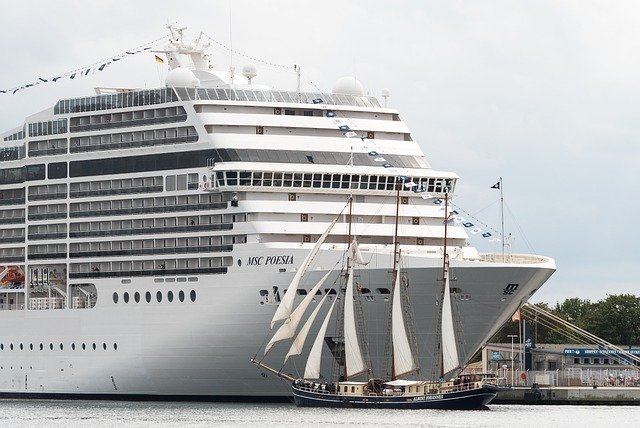Overview of Executive MBA Programs and Their Structure
Executive MBA programs are designed for working professionals seeking advanced management education while continuing their careers. These programs typically include coursework in leadership, strategy, and finance, and are offered by business schools through part-time or modular formats.

What is an Executive MBA program?
An Executive MBA (EMBA) is a graduate-level business degree tailored for mid to senior-level professionals with significant work experience. Unlike traditional full-time MBA programs, EMBAs are structured to accommodate the schedules of working executives, allowing them to balance their professional commitments with academic pursuits. The curriculum typically covers advanced management topics, leadership development, and strategic decision-making, emphasizing practical application of concepts to real-world business scenarios.
How do Executive MBA programs differ from regular MBAs?
Executive MBA programs differ from regular MBA programs in several key aspects. Firstly, EMBA participants usually have more extensive work experience, often ranging from 10 to 15 years, compared to the 3-5 years typical for full-time MBA students. This wealth of experience contributes to rich classroom discussions and peer-to-peer learning. Secondly, the program structure is more flexible, with classes often held on weekends or in intensive modules, allowing students to continue working full-time. Lastly, EMBA curricula are typically more focused on strategic leadership and less on foundational business concepts, reflecting the advanced career stages of the participants.
What is the typical structure of an Executive MBA program?
The structure of Executive MBA programs is designed to maximize learning while minimizing disruption to professional commitments. Most programs follow a part-time format, spanning 18 to 24 months. Classes are usually conducted on weekends, evenings, or through a combination of online learning and periodic on-campus residencies. The curriculum is often modular, with intensive learning periods followed by breaks for application and reflection. Many programs also incorporate international study tours or global immersion experiences to broaden participants’ perspectives on global business practices.
What are the benefits of pursuing an Executive MBA?
Pursuing an Executive MBA offers numerous benefits for senior executives and working professionals. It provides an opportunity to gain advanced management knowledge and skills without career interruption, potentially leading to immediate application in the workplace. The program fosters a valuable network of high-level peers across industries, which can be instrumental for career growth and business opportunities. Additionally, an EMBA can accelerate career progression, with many graduates reporting promotions or significant salary increases upon completion. The degree also enhances strategic thinking and leadership capabilities, preparing executives for higher responsibilities and more complex business challenges.
What are some unique features of Executive MBA programs in India?
Executive MBA programs in India have evolved to meet the specific needs of the country’s rapidly growing economy and dynamic business environment. Many prestigious institutions, such as the Indian Institutes of Management (IIMs), offer executive MBA programs tailored for working professionals. These programs often emphasize topics particularly relevant to the Indian business context, such as managing in emerging markets, navigating regulatory environments, and leveraging technology for business growth. Some unique features include:
-
Flexible learning options, including online and blended formats
-
Industry-specific specializations catering to sectors like IT, manufacturing, and finance
-
Strong focus on entrepreneurship and innovation
-
Integration of traditional Indian management principles with modern global practices
-
Opportunities for international collaborations and exchange programs
What are the top Executive MBA programs available in India?
Several reputable institutions in India offer high-quality Executive MBA programs for working professionals. Here’s a comparison of some top programs:
| Program Name | Institution | Key Features | Duration |
|---|---|---|---|
| PGP-Ex | IIM Ahmedabad | Global immersion, Leadership focus | 1 year |
| PGPEX | IIM Calcutta | International module, Industry projects | 1 year |
| EPGP | IIM Bangalore | Dual degree option, Digital transformation focus | 1 year |
| PGPX | ISB Hyderabad | Large alumni network, Flexible schedule | 15 months |
| EPBM | XLRI Jamshedpur | Blended learning, Jesuit values | 1 year |
Prices, rates, or cost estimates mentioned in this article are based on the latest available information but may change over time. Independent research is advised before making financial decisions.
In conclusion, Executive MBA programs offer a valuable opportunity for senior executives and working professionals to enhance their management skills, expand their professional networks, and accelerate their careers. With a variety of programs available in India, from prestigious institutions like IIMs to specialized business schools, aspiring executives can find options that suit their career goals and schedules. As the business landscape continues to evolve, the insights and capabilities gained through an Executive MBA can prove instrumental in navigating complex challenges and seizing new opportunities in the global marketplace.




